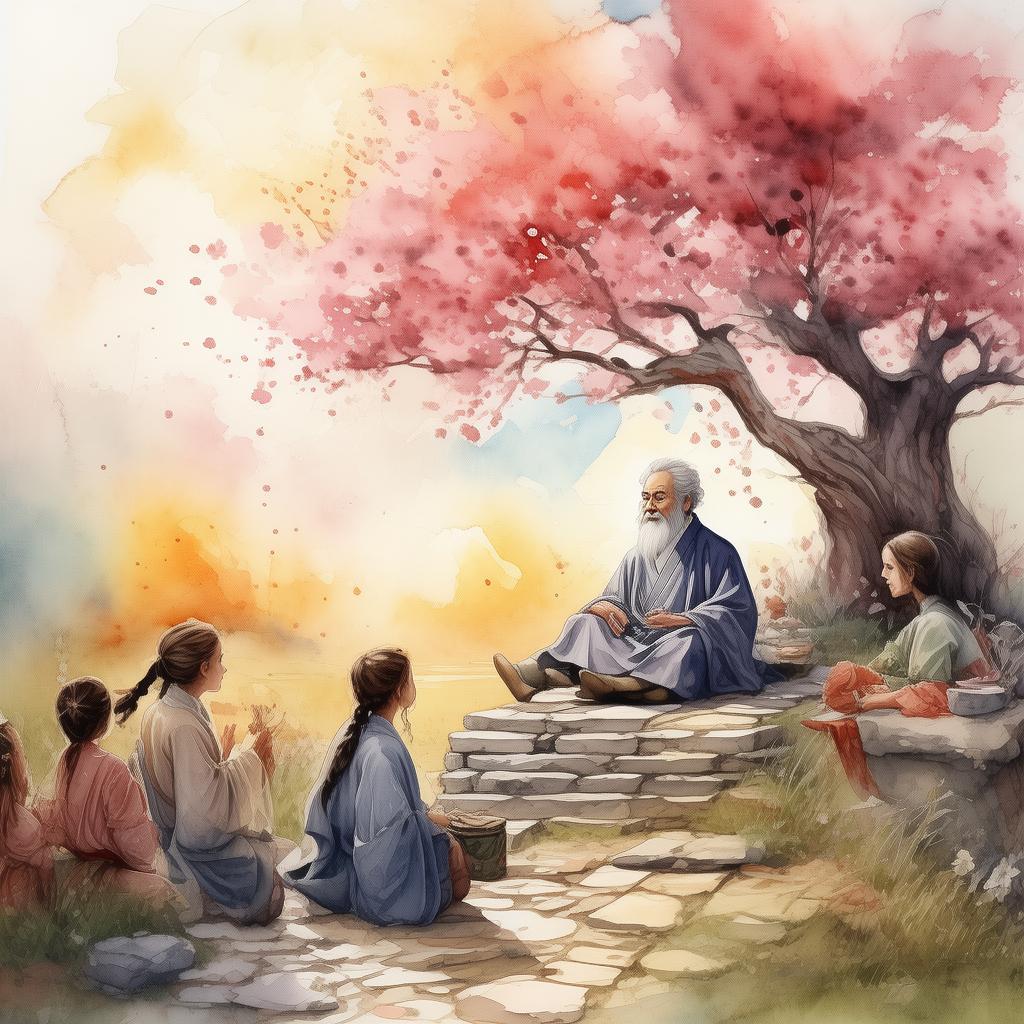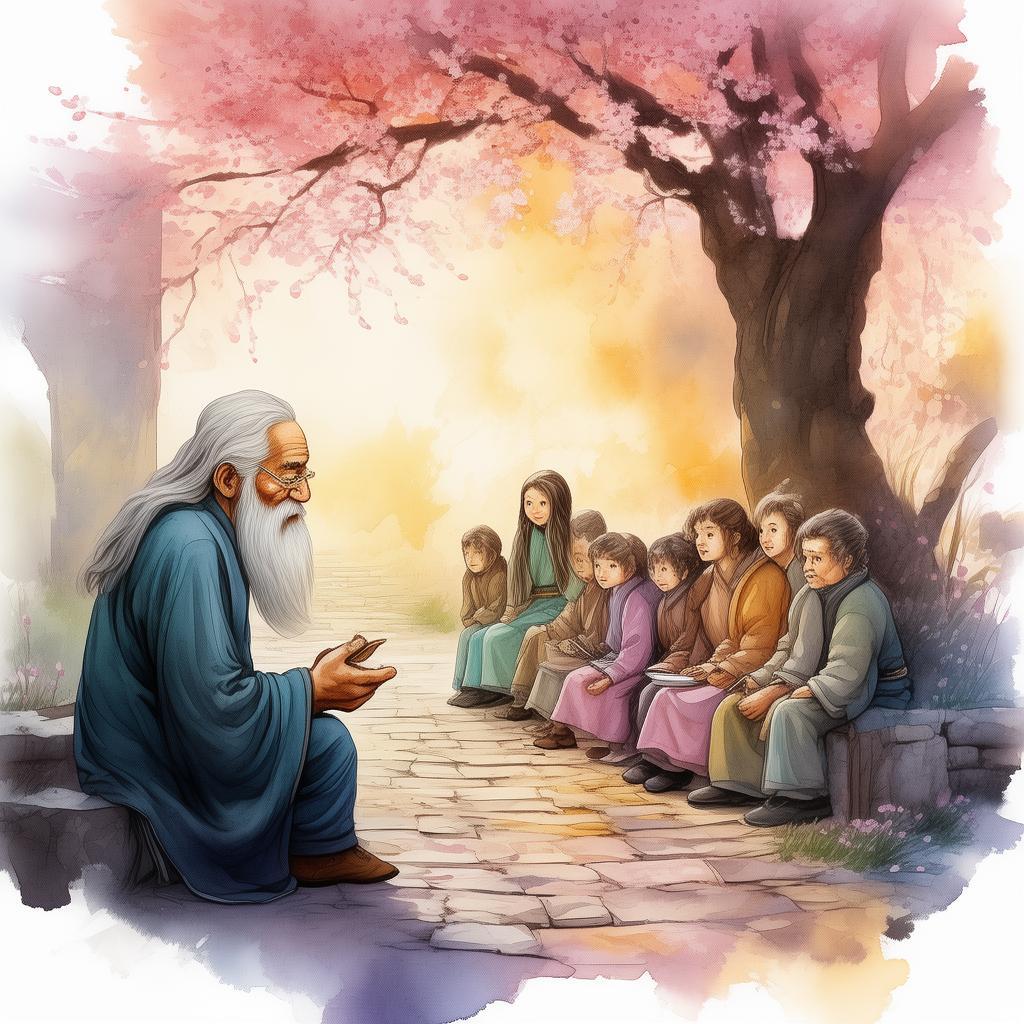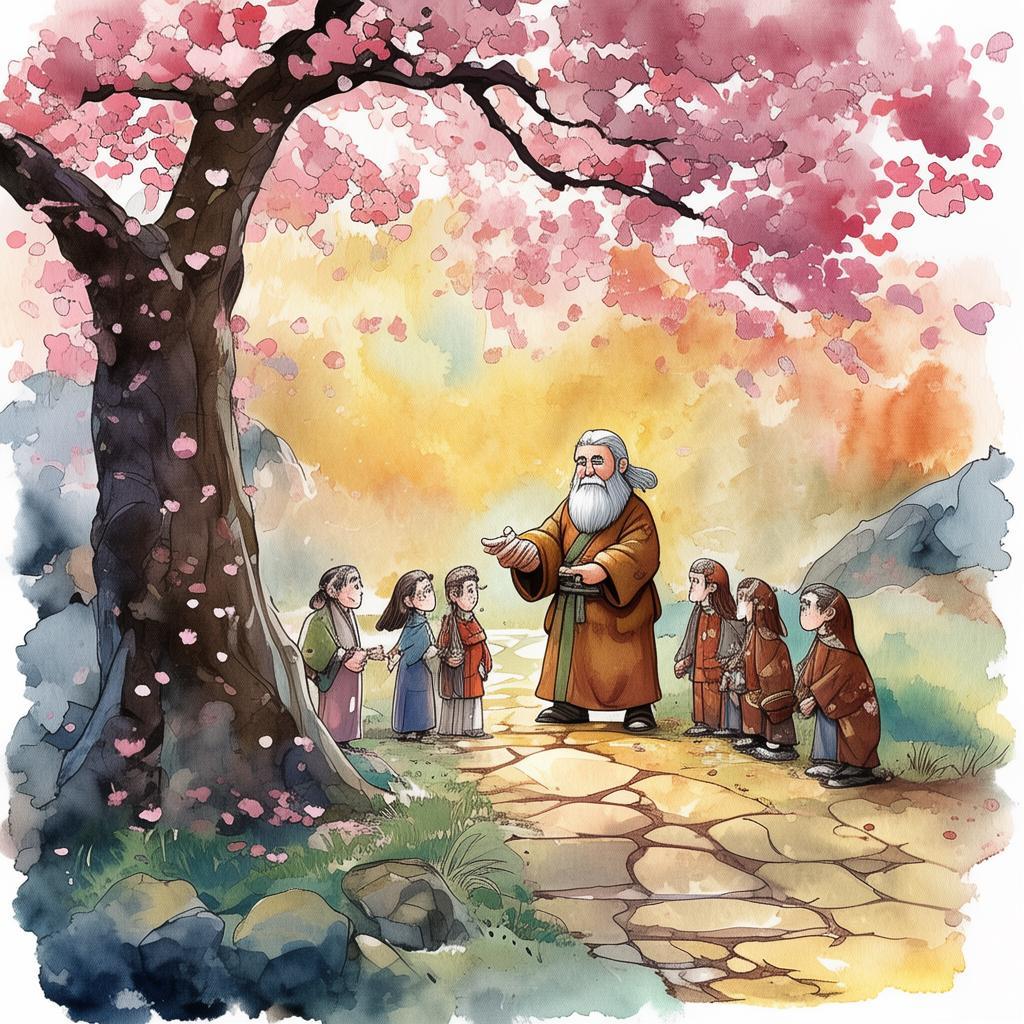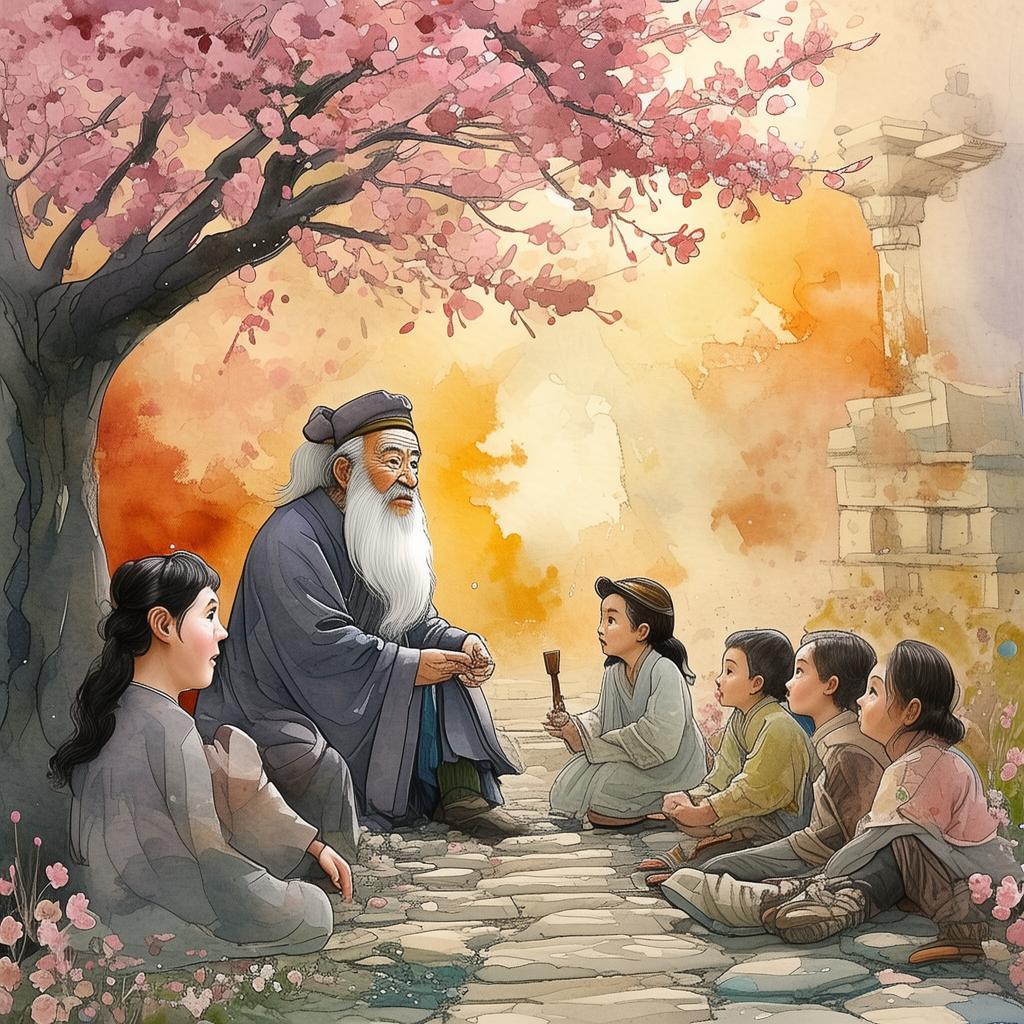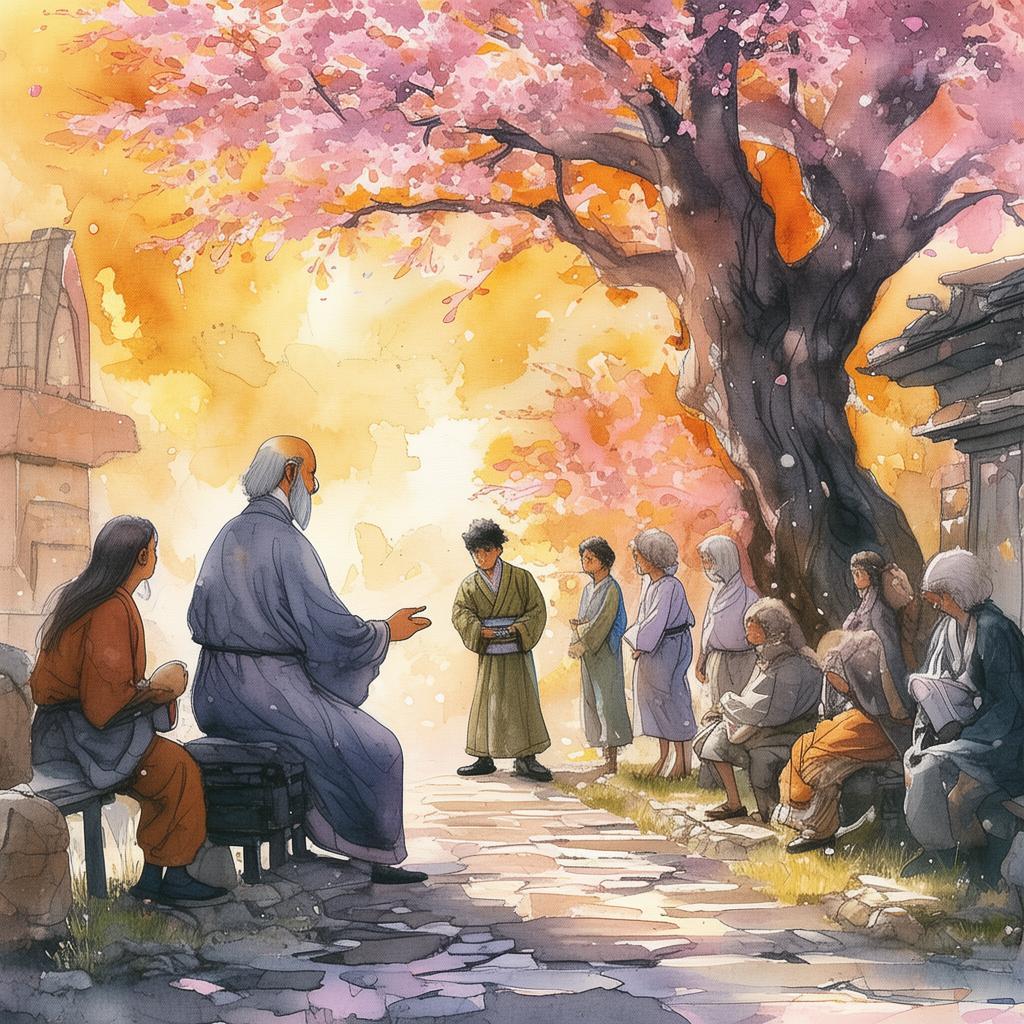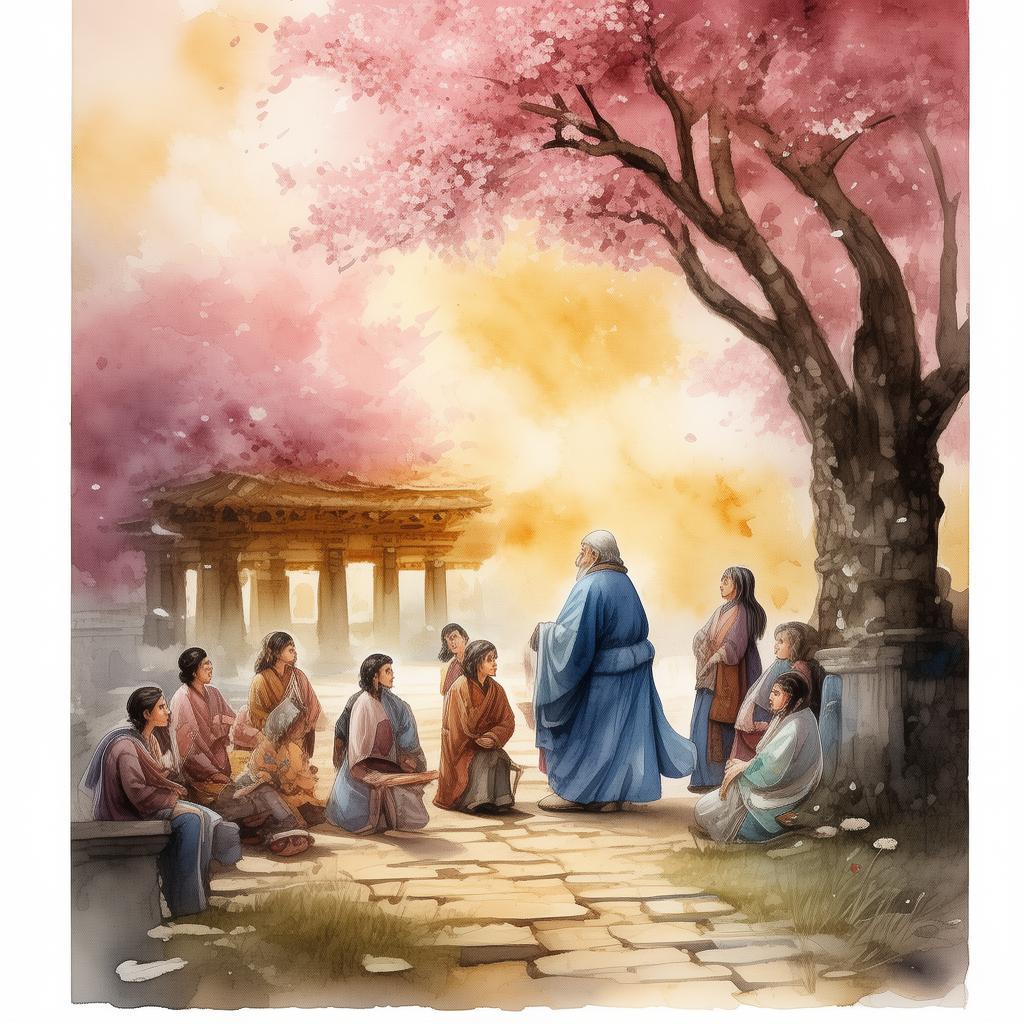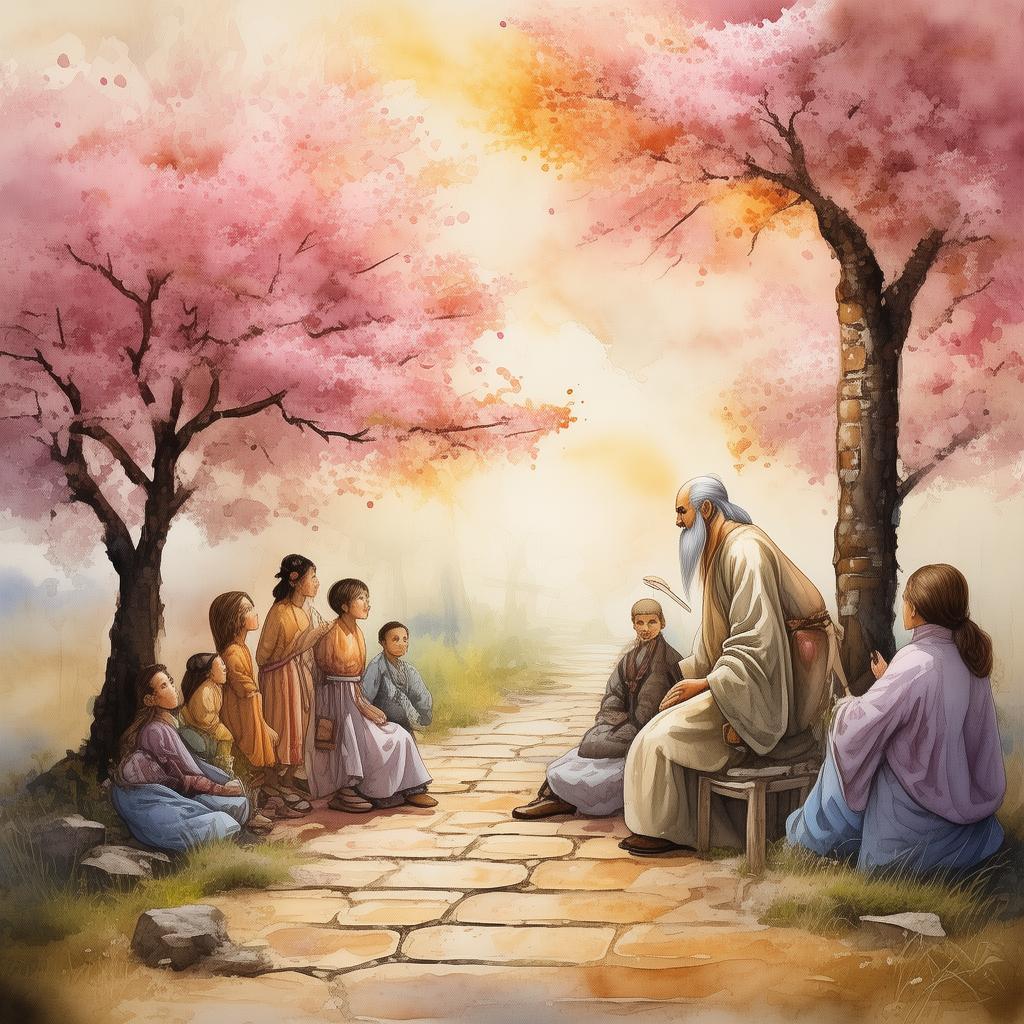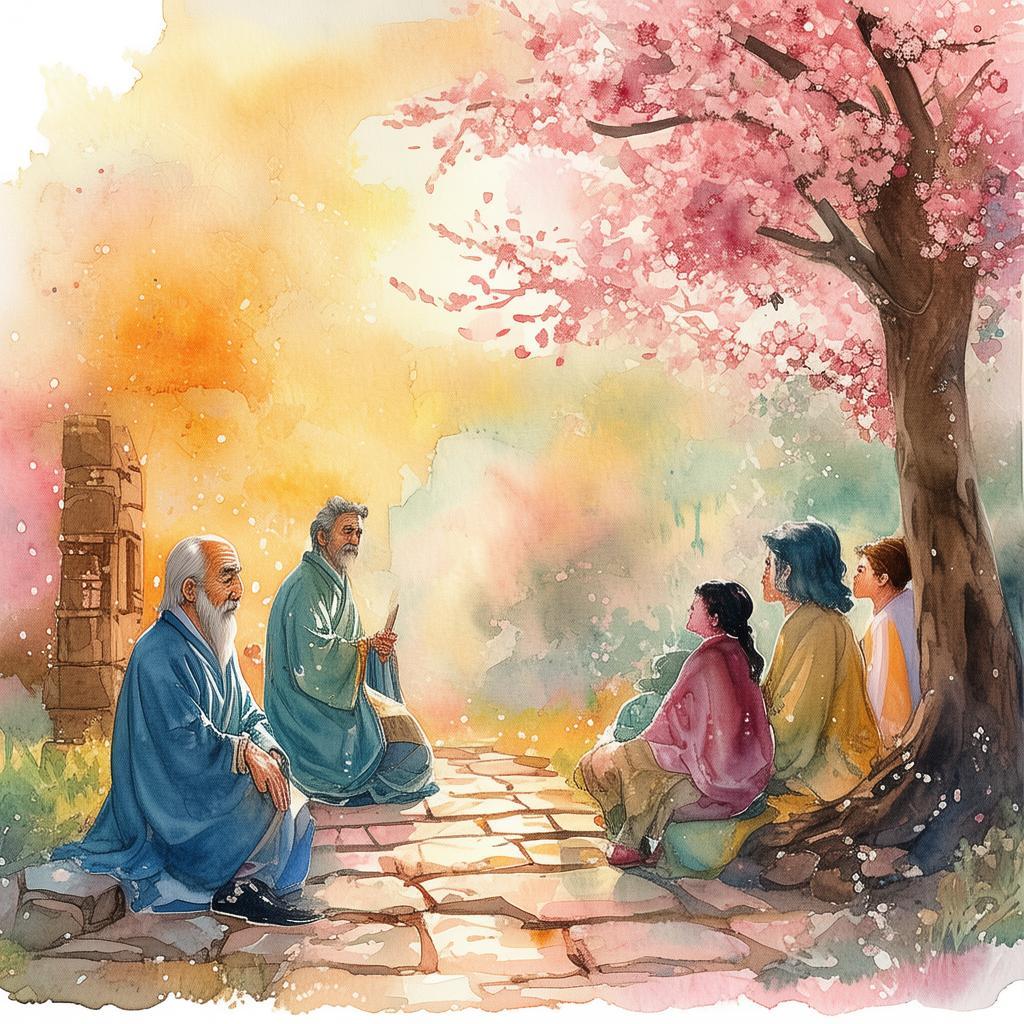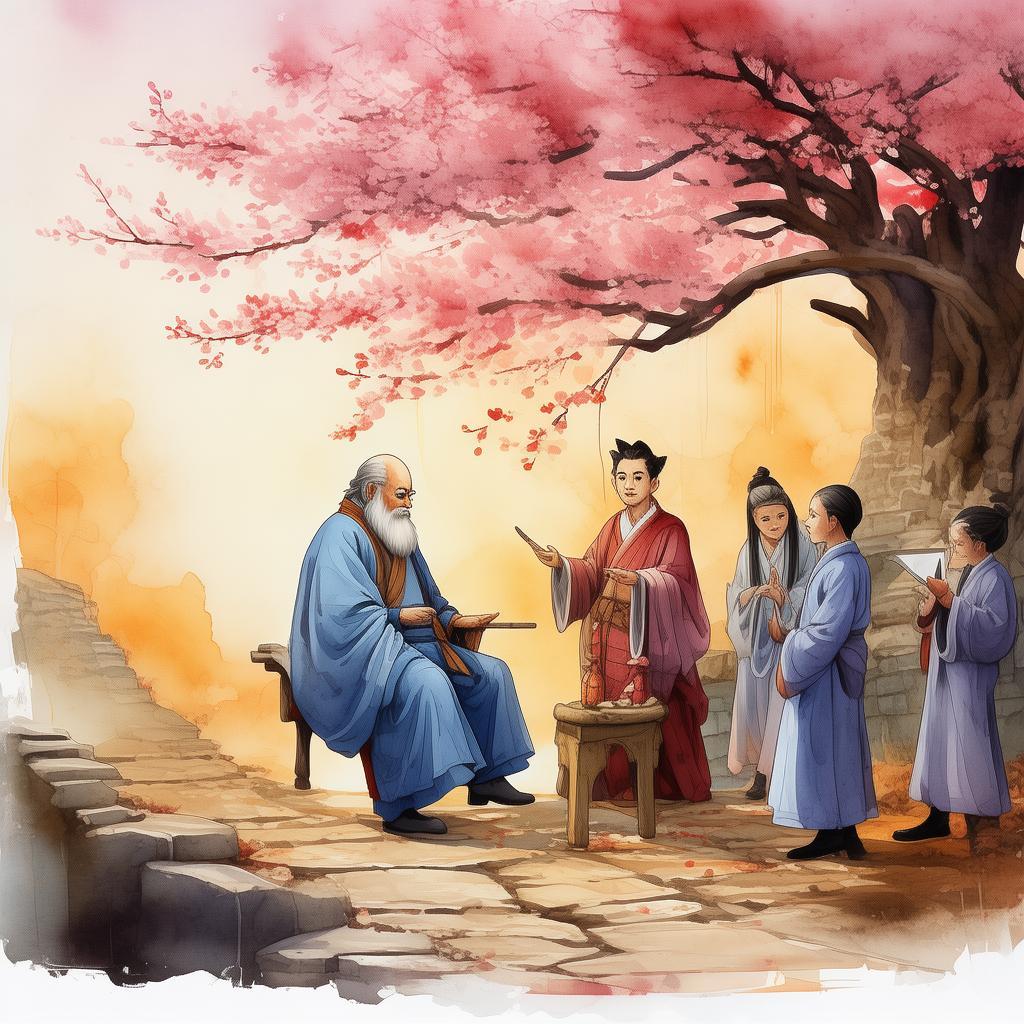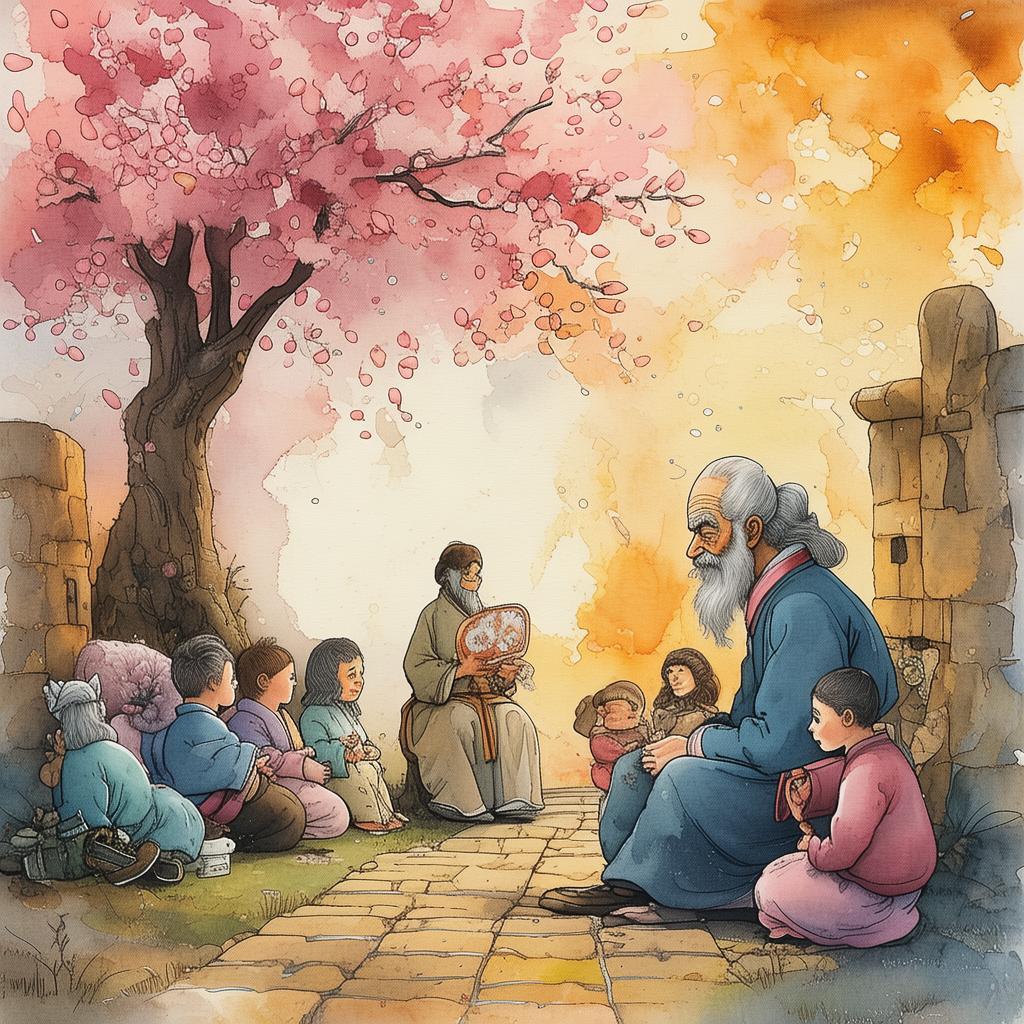The Unconventional Path: A Journey Beyond Clichés
In the quaint village of Eldoria, nestled between rolling hills and whispering forests, there lived a boy named Eli. Eli was not like the other children of Eldoria; he was a boy who dared to challenge the clichés of conformity. The villagers spoke of the boy with a mix of curiosity and skepticism, for Eli was a child who did not walk the well-trodden paths of tradition and expectation.
Eli's father, a blacksmith, spent his days hammering out the metal that shaped the lives of Eldoria. His mother, a weaver, wove the tapestries that adorned the walls of the village hall. Eli, however, had no interest in the tools of his father or the loom of his mother. Instead, he spent his days in the forest, where he found a world of his own making, away from the eyes of the villagers.
One day, as Eli wandered deeper into the forest, he stumbled upon a hidden glade. In the center of the glade stood an ancient oak tree, its gnarled branches reaching towards the sky. Eli approached the tree, feeling a strange pull towards it. As he touched the tree's bark, a voice echoed in his mind, "You are the one, Eli. You have been chosen to break the chains of conformity."
Eli's heart raced. Could it be true? Was he truly meant to challenge the very fabric of his society? The villagers spoke of clichés as the bedrock of Eldoria, but Eli knew that something was amiss. The clichés were suffocating the spirit of his people, and he was determined to change that.
From that moment on, Eli began his journey. He spoke of his visions to the villagers, but they dismissed him as a mere child with wild ideas. Eli, however, was undeterred. He sought out the wise elder of the village, hoping to find guidance. The elder, a wizened figure with a twinkle in his eye, listened intently as Eli shared his dreams.
"Child," the elder said, "your heart is pure and your spirit strong. You must remember that clichés are not the laws of the universe, but mere constructs of the human mind. If you challenge them, you may change not only Eldoria, but the world itself."
With the elder's words echoing in his mind, Eli embarked on a series of trials. He learned to wield the hammer with the same grace as his father, yet he chose to forge tools for the disabled and the elderly, tools that would bring comfort and independence to those who had been forgotten by society.
Next, he took up the loom, not to weave tapestries of the village's history, but to create garments that celebrated the diversity of the villagers, clothing that told the stories of their lives and their dreams.
As Eli's creations began to spread throughout Eldoria, the villagers began to see him not as a boy with wild ideas, but as a beacon of hope. They saw that Eli's challenge to clichés was not an attack on tradition, but a call to embrace the richness of individuality.
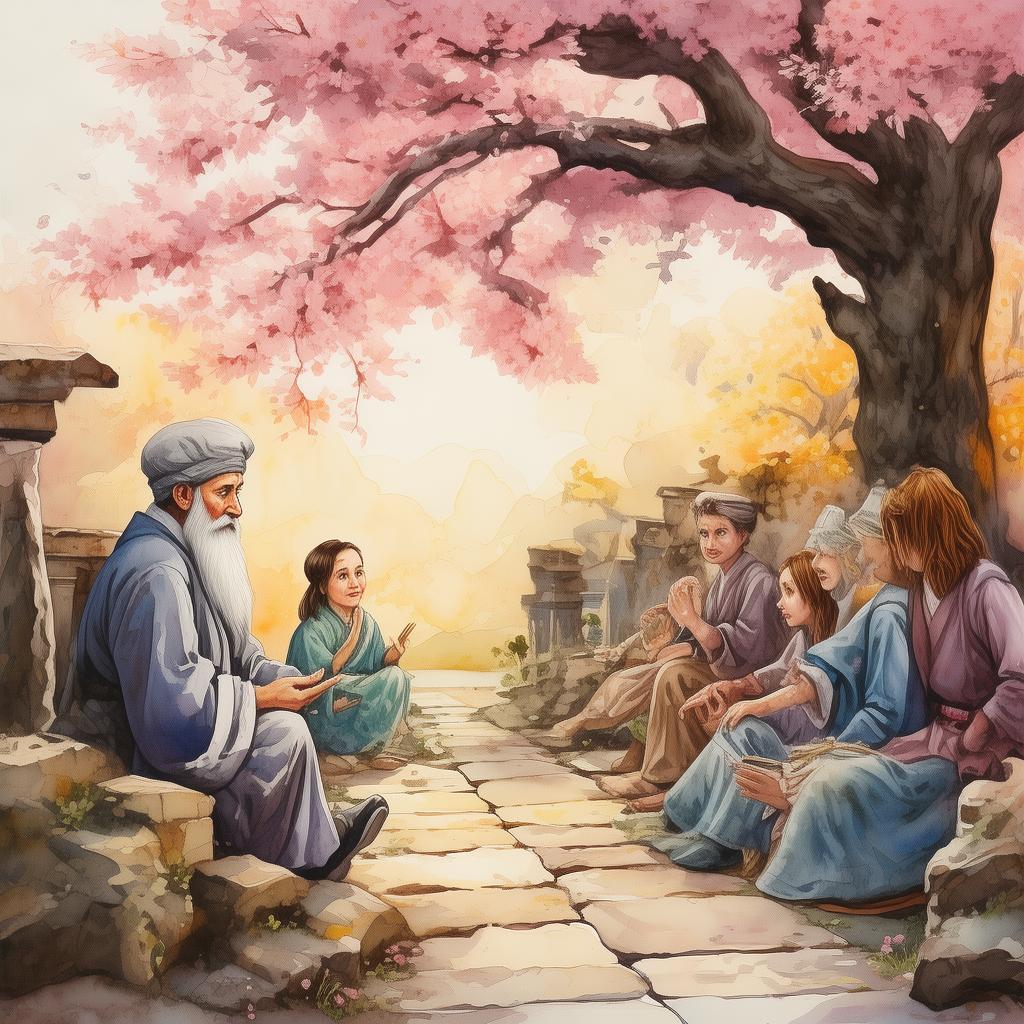
One day, as Eli stood before the village assembly, he declared, "Clichés are like shadows that block the light of our true potential. We must shine our own light, for only then can we see the world as it truly is."
The villagers listened in awe as Eli spoke. They had never before considered the possibility that their lives could be different, that they could break free from the chains of conformity.
In the end, Eli's challenge to clichés was not just a victory for himself, but for all of Eldoria. The village became a place where people were free to be themselves, to pursue their dreams, and to celebrate their unique gifts.
Eli had shown that the world was not as it seemed, that clichés were not the end of the story. And so, he became known not as the boy who challenged the clichés of conformity, but as the boy who lit the way for a new dawn in Eldoria.
✨ Original Statement ✨
All articles published on this website (including but not limited to text, images, videos, and other content) are original or authorized for reposting and are protected by relevant laws. Without the explicit written permission of this website, no individual or organization may copy, modify, repost, or use the content for commercial purposes.
If you need to quote or cooperate, please contact this site for authorization. We reserve the right to pursue legal responsibility for any unauthorized use.
Hereby declared.
